Uncategorized
-
 Health & Medicine
Health & MedicineClinical trial reanalyses may alter who should get treated
Reanalyses of clinical trial data sometimes lead to different treatment suggestions.
-
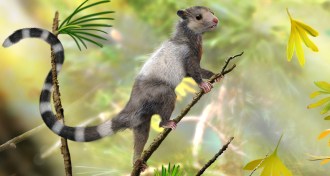 Paleontology
PaleontologyFossils push back origins of modern mammals
Fossils of three newly identified early mammals from China suggest that the common ancestor of today’s mammals lived over 200 million years ago.
By Meghan Rosen -
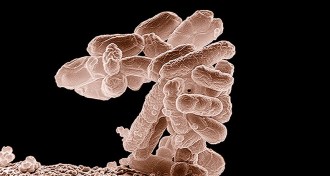 Microbes
MicrobesSpeedy test could improve treatment of urinary tract infections
A new test for drug-resistant bacteria may speed the diagnosis and treatment of urinary tract infections.
By Nsikan Akpan -
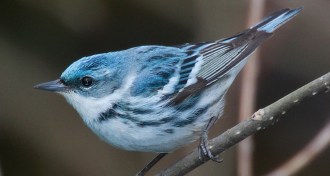 Life
LifeNorth American bird update finds a little good news
Conservation measures have succeeded in improving the plight of certain North American bird species, but overall the national report card says “needs improvement.”
By Susan Milius -
 Health & Medicine
Health & MedicineViruses can zoom through workplaces in hours
A virus on an office door handle can spread to more than half the people working there within a few hours.
By Nathan Seppa -
 Health & Medicine
Health & MedicineInjectable flu drug could add to weapons against infection
The experimental drug, given in a single shot, could prove useful in the event of a lethal flu pandemic.
By Nathan Seppa -
 Archaeology
ArchaeologyPyramid builders could have used rolling blocks
Instead of sliding blocks on a ramp, ancient Egyptians could have rolled the massive bricks to the pyramids, a physicist suggests.
By Meghan Rosen -
 Health & Medicine
Health & MedicineAutism treatment for babies shows promise in small study
A small study finds that changing how parents interact with infants may reduce autism symptoms.
-
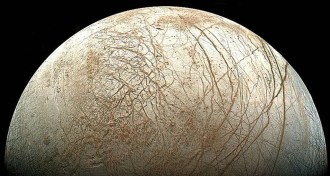 Planetary Science
Planetary SciencePlate tectonics spotted on Europa
First evidence for plate tectonics elsewhere in solar system discovered on Jupiter’s icy moon Europa.
-
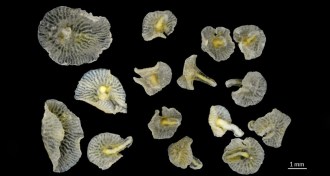 Animals
AnimalsMystery mushroomlike sea creatures get names
Specimens of a mushroomlike animal from the sea now have a scientific name, but researchers aren’t sure what kind of animal they are.
By Susan Milius -
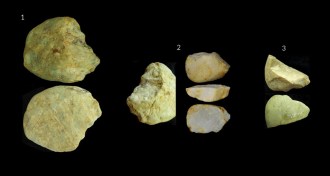 Archaeology
ArchaeologyMore signs emerge of New World settlers before 20,000 years ago
Controversial stone tools of pre-Clovis humans have been excavated in South America.
By Bruce Bower -
 Tech
Tech‘Virtual Unreality’ chronicles dangers of digital deception
Journalist Charles Seife documents how the lies and misinformation that riddle the Internet are harming the real world.
By Janet Raloff